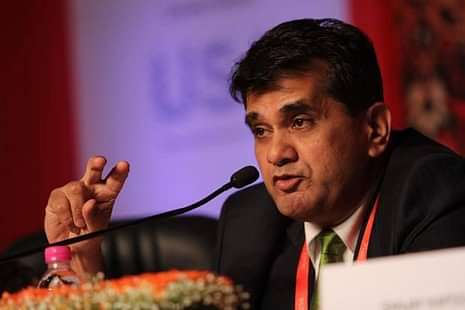
To address the challenges faced by the Indian IT industry and growth of the domestic IT market, the Ministry of Human Resource Development (MHRD), Government of India intends to establish twenty Indian Institutes of Information Technology (IIIT), on a Not-for-profit Public Private Partnership (N-PPP) basis. The partners in setting up the IllTs would be the Ministry of Human Resource Development (MHRD), Governments of the respective States where each lllT will be established, and the industry. Under the new UGC guidelines, HDR ministry aims at creating 10 public and 20 private institutions to emerge as world-class institutions. Arun Jaitley, Finance Minister had announced about this project in his budget announcements. It is being closely monitored by the PMO.
Following the footsteps of Prime Minister’s Office (PMO) suggesting changes in the draft of the HRD Ministry, the NITI Aayog too has stepped in with its suggestions to the HRD Ministry in its plan to set up 20 World-Class Institutions (WCI).
Also Read: No Formal Order Received for Faculty Reservation: IIM-A Director
Amitabh Kant, CEO NITI Aayog is said to have written to the PMO suggesting two changes to the draft UGC regulations.
I. Kant said that the guidelines and rules should explicitly state that the world-class institutions shall not be regulated by professional councils like
- AICTE
- Medical Council of India
- Dental Council of India
- Architecture Council of India
II. He also mentioned that the ten government institutions qualifying for world-class status should have lots of freedom. They should have freedom to fix pay and promotion norms for their faculty. In addition, they should also have space to compete with their private counterparts.
However, at a meeting held between PMO, NITI Aayog and HRD officials, V S Oberoi, Higher Education Secretary expressed reservations about the proposed changes.
Also Read: Maharashtra Govt & BCI in Contradiction over Age Relaxation for Law Admissions
The HRD Ministry feels that exempting the WCIs from regulation by professional councils would need several amendments to the respective Acts of 15 different councils. The move may even lead to resentment at other centrally-funded institutes.
On the degree of autonomy to be granted to the 20 world-class institutions, HRD Ministry and PMO were caught in a tussle. It also hit a legal wall after Solicitor General Ranjit Kumar raised the question on the unlimited powers of the empowered committee, that will select institutions that deserve the world-class status.
While India desperately needs world class institutions to compete with its foreign counterparts and to increase availability of technological education to the students, we just hope that the bureaucracy and delay does not hamper or negate this honourable project.


 Follow us
Follow us














